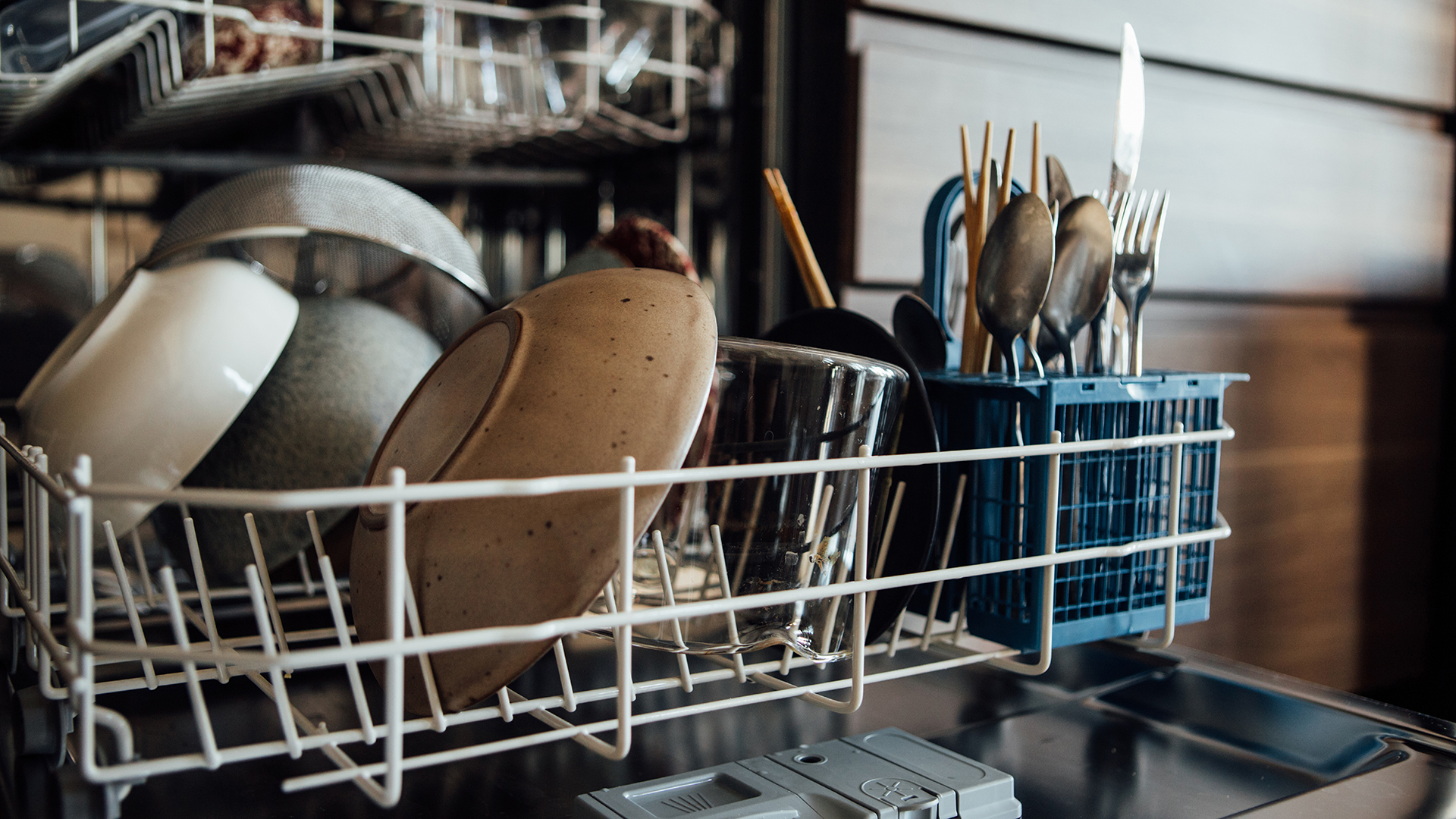Do dishwashers use hot water? Here’s what you need to know
Do dishwashers use hot water, or do they heat cold water? Here’s what you need to know.

Sign up to receive the latest news, reviews, buying guides and deals direct to your inbox
You are now subscribed
Your newsletter sign-up was successful
If you’re in the market for a dishwasher and you’ve been wondering if dishwashers use hot water, we’ve got all the info you need. When you’re buying one of the best dishwashers, it’s important to know how they work so that you can choose the best one for you.
Whether you’re looking for a standard-size dishwasher or one of the best countertop dishwashers, how the dishwasher fills with water and what type of connections you’ll need are crucial considerations. This will affect where you can place the dishwasher and whether you need to have any new pipes installed to accommodate this new appliance.
Dishwashers are a real kitchen workhorse, saving you from the time consuming and repetitive task of washing all your dishes by hand, it’s no wonder we love this appliance so much. But more than that, dishwashers actually use less water than you would typically use if you did the dishes by hand, so step away from the sink and let this appliance take care of the work for you.
You might also want to consider how loud the dishwasher is - some of the quietest dishwashers can be as quiet as a library, which means you won't have to worry about late-night cycles. And if you have a big family or simply produce a lot of dirty dishes, it might be worth looking into the largest dishwashers that will house enough crockery for up to 16 people.
Do dishwashers use hot water?
All dishwashers use hot water during the cleaning cycle. The difference is in where the hot water comes from. There are two main types of standard-size dishwashers that are commonly available in the US. The first has a cold-water hookup, it fills a tub at the base of the dishwasher with cold water and uses an element to heat the water, the dishwasher has an internal thermostat to regulate water temperatures and ensure that it’s always operating at the optimum temperature.
The second type hooks up to your household hot water supply, so when it’s running, it draws water from your hot water tank. So, if your water heater isn’t working for any reason, this will impact the water temperature in your dishwasher, meaning the cleaning ability will be reduced. For a dishwasher with a hot water hook up, your water heater will need to be set up to deliver water at a minimum of 120ºF, most dishwashers will operate the main wash cycle at around 120 – 150ºF and will use an internal element to heat water to higher temperatures for rinsing.
To ensure your dishwasher draws in water at the correct temperature, run the hot tap in your kitchen sink until hot water comes through before you hit start on your dishwasher. This makes sure the dishwasher takes in hot water immediately instead of all of the water that’s cooled down in the pipe.
Sign up to receive the latest news, reviews, buying guides and deals direct to your inbox
Does a dishwasher sanitize dishes?
Dishwashers can sanitize dishes provided the water temperature is hot enough. The National Sanitation Foundation (NSF) says that to reach its sanitization standards and achieve NSF certification, a residential dishwasher must reach 150 during the final rinse when using the sanitizing cycle. So if you’re in the market for one of the best dishwashers and you want a dedicated sanitizing cycle, it’s worth looking for a dishwasher with an NSF-certified sanitization cycle so you know it has met the minimum criteria.

We don’t need to obsessively sanitize every item in the kitchen but to protect babies from potentially harmful germs and bacteria; it’s important to sanitize their bottles. If your baby bottles can go in the dishwasher, then you can also use the dishwasher to sanitize them, according to the CDC (Centers for Disease Control and Prevention). They say that cleaning baby bottles in a dishwasher that uses hot water and a heating drying cycle or sanitizing setting means you don’t need to perform additional sanitization steps.
How do dishwashers work?
Standard-size dishwashers work slightly differently from the way countertop dishwashers work, and each different dishwasher program works in a different way and takes a different amount of time, but the main stages of washing are always roughly the same.
Depending on whether your dishwasher has a hot or cold hookup – it’ll draw in water and heat it to the correct temperature if required.
The initial rinse or pre-wash cycle uses the spray arms or jets to spray water at the dishes, the action of the water removes any loose debris and softens hard dried on food deposits, this water is recirculated and continues dislodging food particles until the end of this stage. This water is drained away, and the dishwasher draws in fresh water for the main wash cycle, heating it to the optimum temperature.
During the main wash cycle the detergent dispenser automatically dispenses the detergent, this mixes with the hot water and together with the power of the water jets, this cycle removes all of the dirt from your dishes. The hot water and detergent mixture is repeatedly filtered, reheated, and circulated around the dishwasher so that even the toughest grime can’t escape this prolonged cleaning effort.
Next, a rinse cycle ensures all final traces of detergent and food residue are removed by spraying clean hot water around the machine repeatedly. If you use a program with a drying cycle, the dishwasher will heat the air inside the appliance to dry the dishes.
If you’re wondering how long dishwashers last, dishwashers don’t require too much maintenance, but you can make your dishwasher last longer by regularly cleaning it, checking filters, and loading it correctly.

Helen, with a degree in Home Economics and a background in the food industry, transitioned to a career at the Good Housekeeping Institute in 2007. She specializes in testing and reviewing household appliances and offering advice in various publications. She enjoys gardening, working out, and DIY projects in her free time.
